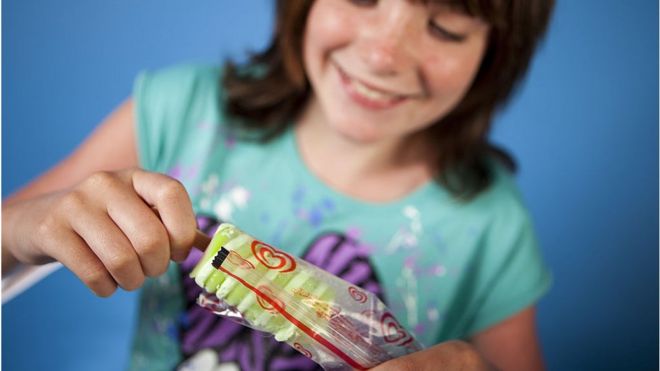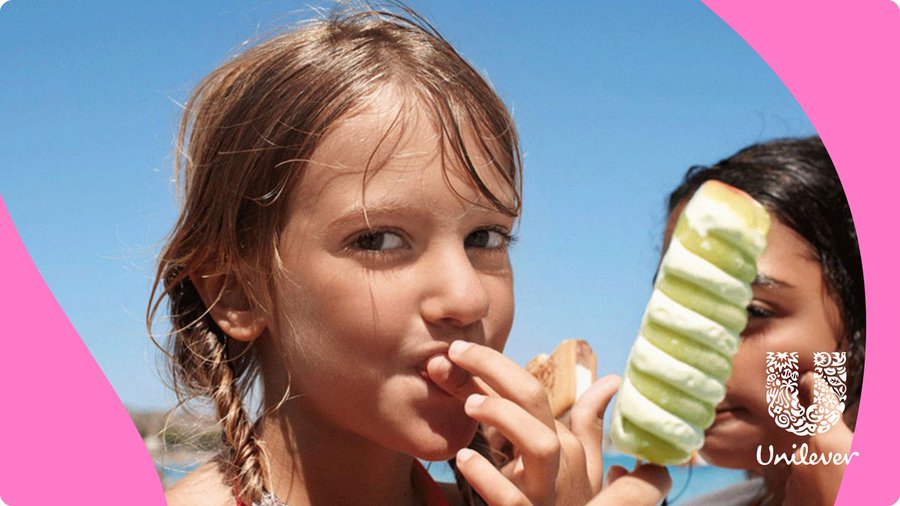Corporate Conscience of Contrition?
"The World Health Organization names childhood obesity as one of the most serious public health issues of the 21st Century. And it's a key reason why Unilever is committing to new principles on marketing and advertising foods and beverages to children."
"It's a move designed to help parents, caregivers and kids make informed choices about the food and drinks they buy, and to address the rise of social media, and the vast increase in products on sale."
Unilever Company statement
"Their bottom line is profit, not public health."
"Without policies that put some rules around marketing to children across all companies, it's hard to believe one company is going to sacrifice its profits to effectively reduce consumption of unhealthy foods."
"Policies would be good in that sense because they level the playing field."
Fran Fleming-Millei, director, marketing initiatives, Rudd Center for Food Policy and Obesity
"They can say, 'We've already done all these things and we're being proactive', as a delay tactic."
"They can pledge things that sound great but have a lot of loopholes."
Shu Wen Ng, associate professor, nutrition department, University of North Carolina, Chapel Hill
 |
A scoop on Ben and Jerry’s Cherry Garcia ice cream on Free Cone Day in 2016. Source: Ben and Jerry's
|
Dr.Ng takes a pragmatic view of one of the oldest multinational companies of consumer goods suddenly posing as a good corporate citizen with an empathetic outlook on the growing epidemic of obesity among children whose cause is fairly well recognized as processed and junk food availability as advertised by their makers as wholesome, delicious and just waiting for children to use all the wiles at their disposal to convince their mothers they'll eat their vegetables if they can anticipate 'treats' afterward.
Companies may make pledges of the kind that Unilever has just released in the interests of gaining credit for minuscule changes or ingredient reformulations, then touting them as improvements when those changes were already in the pipeline because head office is aware that the U.S. Food and Drug Administration's Nutrition Facts labelling would of necessity lead them in that direction. The new panels outlining nutritional data list total calories in a larger font and serving size requirements have been altered to reflect volumes actually eaten.
 |
| Getty Images |
Ice cream products will no longer be promoted in schools or in children's films, and nor will Unilever continue to use celebrities or social media influencers, much less licensed cartoon characters in marketing to draw children's attention under age twelve. According to a National Survey of Children's Health report released in October, among youths aged ten to 17, obesity rates averaged 15.3 percent nationwide. In Mississippi that rate soared to 25.4 percent. Since the 1970s obesity rates for children and adolescents have tripled and more.
In 2010, Unilever and 18 of the world's largest food corporations signed the Children's Food and Beverage Advertising Initiative, where they pledged they would no longer advertise Skippy and Popsicle brands to children under six years of age. It would advertise those food and beverage products that met certain nutritional criteria for children between ages six and 11. The company debuts, alongside its announcement, a "Responsibly Made for Kids" label.
 |
| Unilever to stop marketing products directly to kids.Calla Kessler/The Washington Post |
Every ice cream in the kids' range will, by the end of 2020, contain no greater total calories than 220, with a maximum of 12 grams of sugar per portion. To meet that sugar limit, points out Fran Fleming-Millici of the Rudd Center for Food Policy and Obesity, many of the Unilever products will have seen artificial sugars added; additives not meant nor recommended for children's consumption. And, as associate professor Dr.Ng adds, many food and beverage companies choose voluntarily to restrict marketing to children with the thought of delaying stronger government-imposed regulations.
Chile, among other countries in Latin America, also confronted with rising obesity levels in children, has led the way to reduce advertisement exposure directed at children for foods high in added sugar, saturated fats, calories and added sodium. All these additives in food products require them to display black stop signs on front-of-package labels. Such black stop signs ensure these products cannot be sold or promoted in schools, or included in television advertisements targeting children -- or marketing strategies aimed at children.
 |
These cookies are a triple-label threat: They're high in sugar, saturated fats and calories.
|
As a result of Chile's proactive vision, when these rules were adopted in 2016, consumption of sugar-sweetened drinks saw an almost 25 percent drop. Food, beverage and restaurant companies in the United States spent $13.5 billion in advertising costs across all media in 2016, according to the Rudd Center, representing a 7 percent increase since 2007, irrespective of the commitments from major food companies who had signed the Children's Food and Beverage Advertising Initiative.
Unilever@UnileverWe’re changing the way we go about marketing and advertising our ice cream, food and drinks to children. Find out more here: bit.ly/31L3WdB9:58 AM · Feb 12, 2020
Labels: Advertising, Children, Health, Junk Food, Obesity, Unilever


0 Comments:
Post a Comment
<< Home